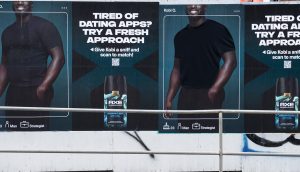However the dissemination of news evolves over the next few years, one thing is certain: the content, and the advertising that goes along with it, will need to be targeted to the individual if it’s going to thrive.
That was the message from the new media and marketing panel at this year’s Ad Club of Toronto Newspaper Day.
‘You share your TV with your family. A lot of the time, you share your computer with your family,’ said David Coleman, director of marketing, Spreed. ‘Your mobile phone, you generally aren’t sharing that with anyone else.’
He added that six-figure mobile ad revenues are becoming a reality, and the trick is for companies to target the individual.
‘Don’t just push out an application and sponsored content,’ he said. ‘Know who your user is.’
The same can be said with personal profiles on social media sites, said Steve Irvine, senior business leader, Facebook Canada. Alluding to Facebook’s ‘open graph’ strategy, Irvine made the case for newspapers to embrace Facebook not as a destination but as ‘the connective tissue that ties together everything you’re working on.’
‘We’re seeing huge referral traffic from Facebook to news sites, and we’re seeing a huge viral shift for the news,’ he said. ‘People want to share and spread news in ways that’s relevant to them. As you’re seeing the news come in, it comes with commentary from your friends or family and that might pique your interest.’
Irvine said such simple moves as embedding ‘Like’ buttons on news sites increases traffic without the liker leaving the site. With the average profile connected to 190 friends, the article quickly spreads with each social endorsement, pushing more people to the news site.
Moderated by Ken Whyte, EVP, consumer publishing, Rogers, the panel also tackled the question of whether or not people will ever get back into the habit of paying for access to quality news. This came just a day after the launch of Rupert Murdoch’s The Daily, the first tablet-specific US newspaper.
David Neale, VP special projects, Research in Motion, thinks people will be willing to pay, but first the method of payment needs to improve.
‘Some people are reticent about purchasing things online. When you move that to mobile, people have double anxiety,’ he said. ‘When it becomes simple and the billing is pre-arranged, and you don’t need to pull out your credit card…you’d be astounded, because so much of this material is consumed in a snacking and grazing fashion.’
Coleman wasn’t so quick to believe that a paywall was the answer. ‘As soon as you charge for an application, your audience gets cut in half,’ he said, adding that, in many cases, it would be more beneficial to bank on the ad revenues of the larger audience than to hope the audience will pay.


















